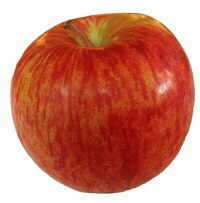Contents
What is vitamin B good for?
Characteristics of vitamin B complex
Vitamin B complex consists of a set of vitamins, all very similar, which act together for our body to be healthy. All B vitamins are water soluble, that is to say, they dissolve in water. This determines that their assimilation is rapid, but also expelled through the urine, which implies that we have to ingest a minimum amount daily to avoid deficiencies.
When ingested through food, we get them together. This means many of them are presented in the same plant or in the same flesh, fish or milk. This is the reason why, with certain deficits, “vitaminic complex B is prescribed”. This does not mean that supplements for a particular B vitamin deficiency do not exist. Science has been able to synthesize all the vitamins that make up this complex appeared in a combined in nature.
Major and minor vitamins within the vitamin B complex
Within the family of vitamin B we have the following:
- Main Vitamins or “official” vitamins B. They are those that the organism cannot produce so we needed to ingest them in a minimal amount daily, called recommended minimum dose or RDA. They all are necessary because they work well together and because the lack of any of them could be substituted with another. There are eight major B vitamins: thiamine, riboflavin, niacin, pantothenic acid, pyridoxine, biotin, folic acid and cobalamin (which can be seen in detail in each of the related links)
- Secondary Vitamins of family B or “nonofficial” vitamins B: They are called like this because they do not need a minimum daily dose since the organism can produce them:choline, inositol, PABA, and lipoic acid.
What is Vitamin B necessary for?
Vitamin B is necessary for the correct functioning of the organism. The main functions performed by the B-complex vitamins are the following::
- Producing energy through food.
- Participating in the growth and cell division.
- Producing many hormones, enzymes and proteins important for our body.
- Caring for the health of the heart and arteries.
- Keeping the nervous system in good condition.
- Caring for mind health.
- Strengthening the immune system
Where can vitamin B be found?

Most of these vitamins are found in food.
In animal foods, they are very common in the liver and viscera in general, veal, chicken or pork. Eggs are also quite rich.
Among plant foods, they are especially rich in:
- Whole cereals (rice, wheat, oats, etc)
- Legumes (soy, peas, lentils or dry beans, etc.)
- Nuts. Peanut butter or mushrooms contain many vitamins of the complex.
- Brewer’s yeast is one of the main sources of vitamin B, as it contains all the vitamins of the complex.
- Wheat germ is rich in this complex.
Who needs more vitamin B? Situations in which there could be some deficiency.
Normally a varied diet is usually sufficient to meet the daily demands of this vitamin.
There are however some situations that could produce a deficiency. This implies that we should eat those foods rich in B vitamins or need an additional intake through supplements. Situations of potential deficiency include the following:

- Seniors: As they grow older, people become less able to absorb this vitamin. Also the elderly, especially those who live alone or who are not well served, can have a poor diet with small amounts of vitamin B.
- Patients of bowel disease: intestinal diseases cause poor absorption of this vitamin.
- People who drink too much alcohol: Alcohol reduces the absorption of some members of the vitamin B complex, so that people who abuse alcohol may have deficiencies.
- People who smoke: Tobacco reduces the absorption of some members of the vitamin B complex, so that people who abuse alcohol may have deficiencies.
- Strict vegetarians: Vegetarians who have a very strict diet with no animal flesh, eggs or milk, can have vitamin B deficiency unless they take an abundant amount of plant foods rich in vitamin B.
- Pregnant or nursing women: Pregnant women or nursing mothers need more vitamin B. If they do not watch their diet they could develop deficiency of vitamin B.
- Thyroid patients: It is an aid to regulate production of thyroid hormone, so it can be used both in cases of hypothyroidism and hyperthyroidism. (The usual dose is about 1000 mg daily)
- Patients or operated patients: During illness, especially chronic ones, or after surgery, additional expenditure of some B vitamins occurs.
Toxicity of vitamin B
Being water-soluble vitamins, the excess of vitamins of complex B does not accumulate in the body so it does not show toxicity except for niacin and pyridoxine. The first is responsible for the flushing of the skin and pruritus, burning or tickling in it, but high doses of this vitamin can lead to liver disease. High-dosage of pyridoxine is responsible for nervous system damage. Ingestion of PABA supplements may damage the skin, eyes, nervous system or liver.
Many of these vitamins, although they are not actually toxic, consumed in excess can cause abdominal pain or diarrhea. Other times may indicate interactions with certain substances or drugs it is advisable to study in detail each of them.
Tannin-rich beverages such as coffee or tea, can inhibit the absorption of this vitamin. Do not drink these beverages after lunch if a high intake of it is required.
Consult your physician before starting any treatment with vitamin B. This is particularly required if you are taking any other medicine or if you have a disease.
![]() More information on vitamins.
More information on vitamins.








